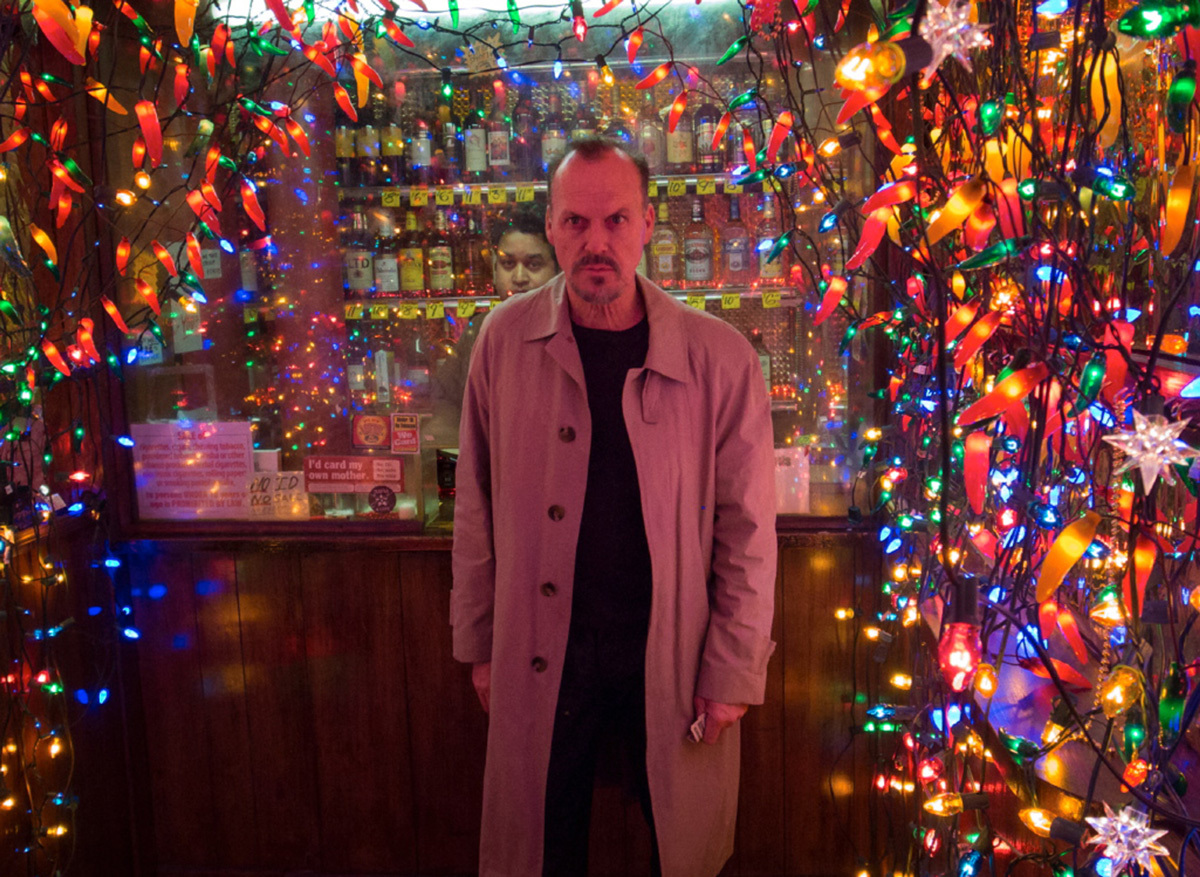According to Marlon Brando “Acting is the expression of a neurotic impulse. It’s a bum’s life. . . . The principal benefit acting has afforded me is the money to pay for my psychoanalysis.” And the method actor and certified hunk clearly knew what he was talking about.
The new film Birdman, by Mexican director Alejandro González Iñárritu, focuses on the neuroses of a team of actors before the opening night of a Broadway play. Let’s face it, pretty much everybody in the film is hovering just on the wrong side of mania. And none more so than its lead character, Riggan Thomson, a washed-out actor famous for playing superheroes (and played by Michael Keaton who is also… well, ditto). In order to gain some much-needed career credibility, Riggan decides to put on an ambitious Broadway adaptation of a Raymond Carver collection of short stories, even though he doesn’t really seem to understand what he’s doing. When a member of the cast is knocked out on opening night, Riggan must fill the role with a notoriously difficult actor (played brilliantly by Edward Norton, who also… well, ditto). Norton’s character is the sort who will try to get a hard-on on stage to get ‘in character,’ even if it means forcing himself on his co-star in front of an audience. Shot as if in a single take, Birdman takes on a hallucinatory feel as if warped by the egos and complexes of the stage performers. With that in mind, here are some of our favourite neurotic actors to have graced the silver screen.
Opening Night
In John Cassavettes’ ninth feature film, he puts his wife Gene Rowlands in the role of the boozy, increasingly depressive middle-aged actor Myrtle. For a start, Myrtle is resentful at being cast in a play called The Second Woman, in which she must play the menopausal title role. Even if she secretly understands the character, she rejects it, unable to cope with the notion of ageing and death suggested. Then a teenage girl fan of hers dies in front of her after hunting for her autograph. Ghosts start to follow her. Her co-star rejects her sexual advances. She keeps on drinking, struggling through the lines, drinking more and doing everything she can to make things difficult for the other actors and director. Confronted by her fading looks and the precarious nature of her ‘star’ quality, Myrtle loses her shit. “I seem to have lost the reality of the . . . reality,” she mumbles at one point. A woman on the edge of a nervous breakdown, Myrtle’s ghosts become too much to handle as the pressure roles on until opening night.
Sunset Boulevard
In Billy Wilder’s brooding film noir masterpiece, Gloria Swanson plays a delusional and reclusive silent film star called Norma Desmond. Norma’s career faded with the coming of the talkies, but like an LA version of Miss Havisham, she’s not giving up that easily. In a series of utterly OTT fur stoles, floor-length gowns and turbans, Norma comes out with line after line of pure gold: “You see, this is my life! It always will be! Nothing else! Just us, the cameras, and those wonderful people out there in the dark! … All right, Mr. DeMille, I’m ready for my close-up!” A prominent actress of the silent era, in reality Swanson had actually performed many times under the director of the legendary Cecil B. DeMille. One of my favourite lines from Norma here: “You used to be in silent pictures. You used to be big.” To which she bristles visibly: “I am big. It’s the pictures that got small.”
Theatre of Blood
No-one likes a professional art critic, it seems. That much is apparent in Birdman, where the formidable theatre critic Tabitha (Lindsay Duncan) is told she has a face that ‘looks like she just licked a homeless man’s ass.’ Thankfully in Douglas Hickox’s classic black horror comedy Theatre of Blood, the actor gets his revenge on the despicable critic. Legendary horror actor Vincent Price plays an old-school actor-manager who conspires with his daughter (played by Diana Rigg) to murder all of the London Critics’ Circle. (I’m sure many, before and after, have nursed similar fantasies.) They enact a series of murders on theatre critics which imitate various Shakespearean death scenes. Well that’s one way of taking criticism.
Whatever Happened to Baby Jane?
In a Gothic mansion that used to be owned by Rudolph Valentino, Baby Jane and her sister Blanche live out a claustrophobic existence of control and abuse. Baby Jane (a snarling and haggard, pitch perfect Bette Davis) used to be a child actor. Now she “takes care” (make that “horrendously bullies”) her paraplegic sister Blanche (played by Joan Crawford). As a child, Baby Jane was famous for her sugar-sweet performances of “I’ve Written a Letter to Daddy,” all curls, bows and frilly dresses. But fame wasn’t to last, and soon Blanche was getting all the headlines. Then, mysteriously, Blanche had an accident, condemning her to a wheelchair for life…
Withnail & I
Withnail & I has basically become the blueprint for out-of-work actors everywhere (particularly those living in bedsits, drinking wine out of mugs, rubbing themselves furiously with Deep Heat). “I shall never play the Dane!” mourns Withnail — and at that moment, the screenplay notes, all ambition ceases to exist.
Credits
Testo Sophia Satchell Baeza
Frame da Birdman
